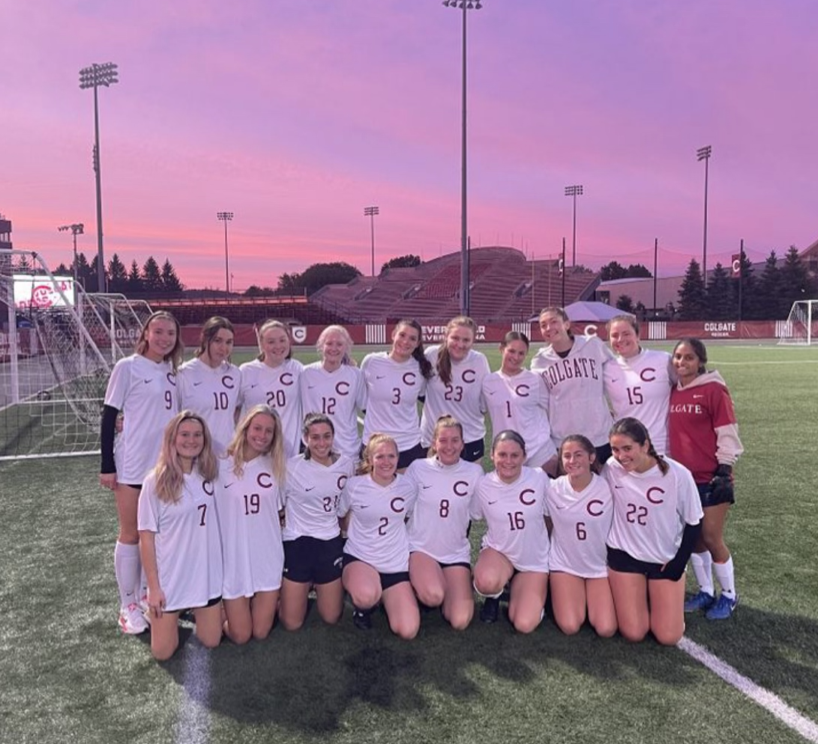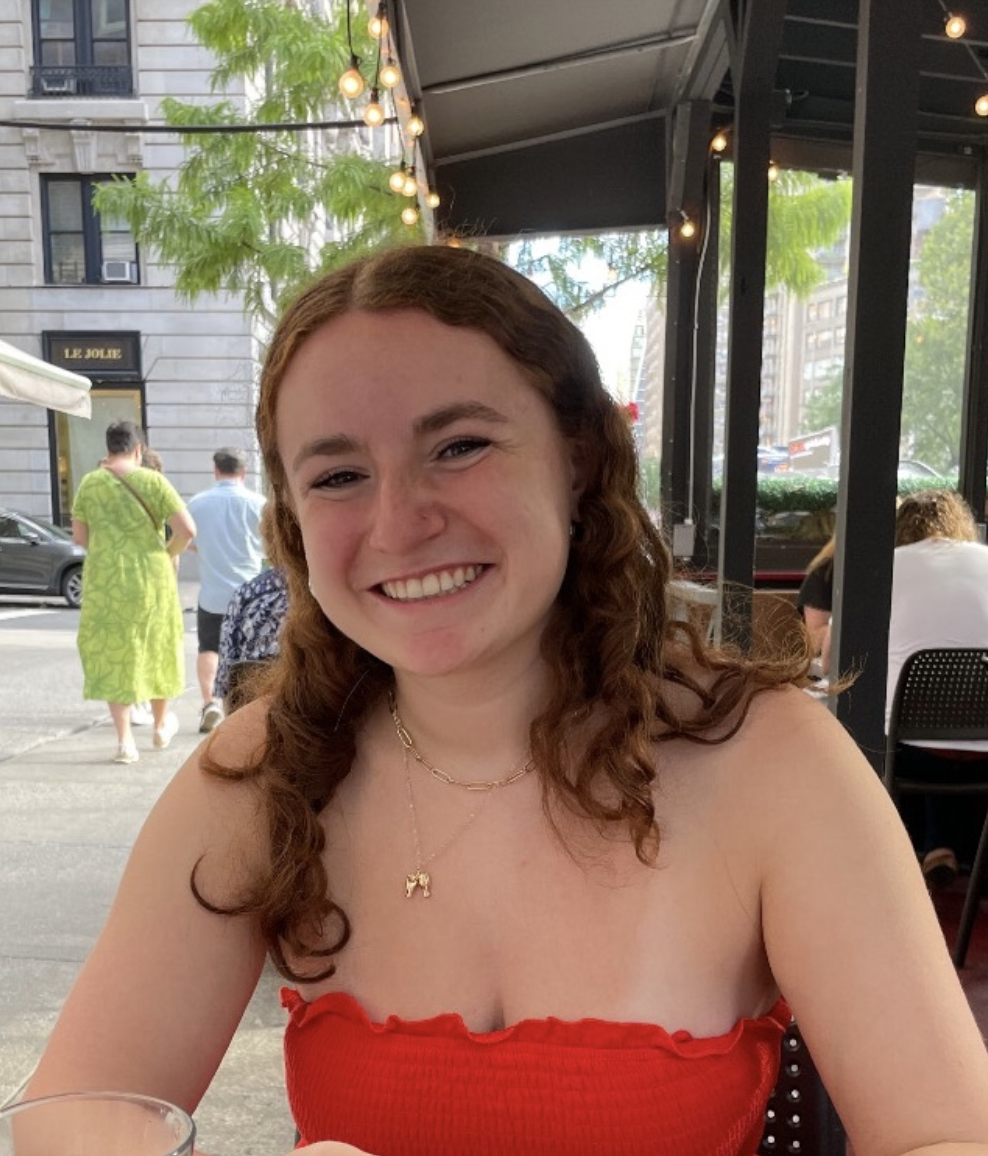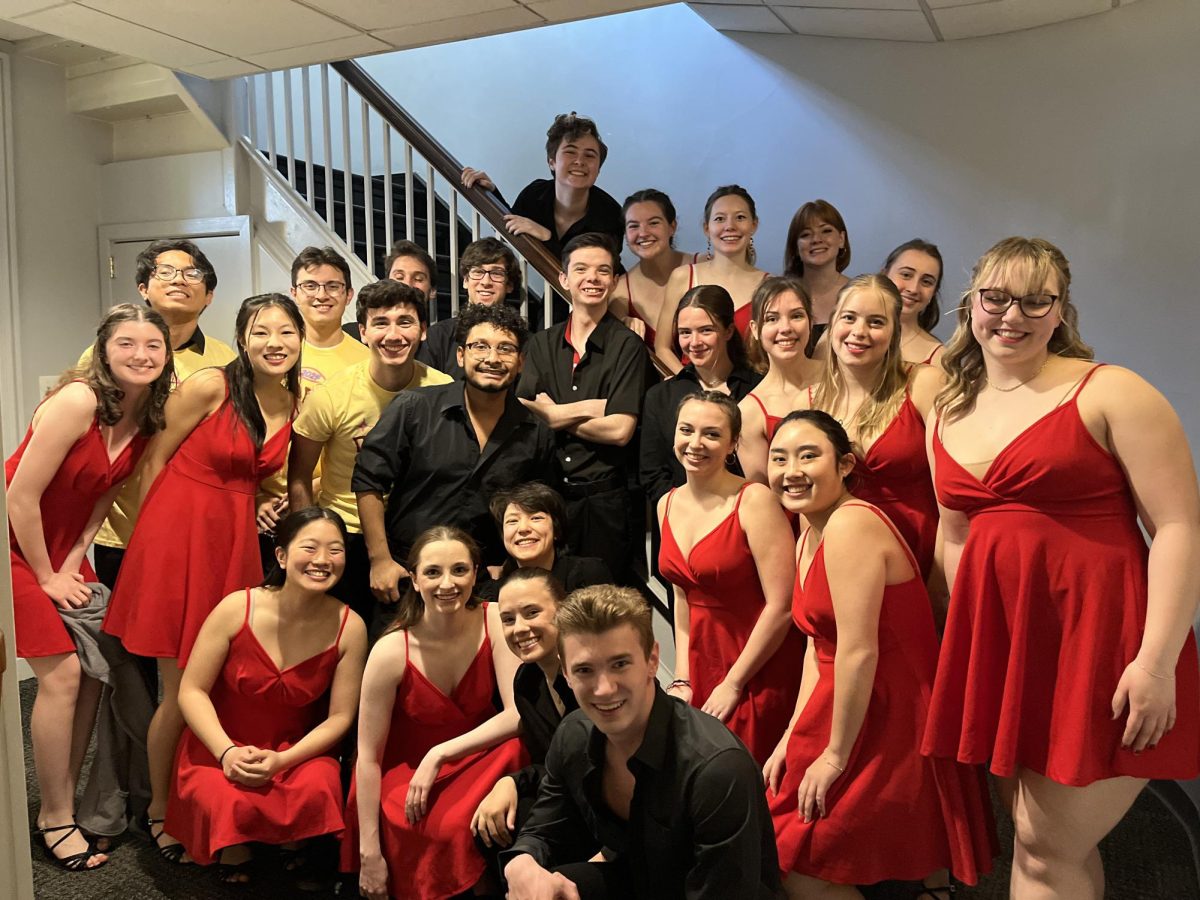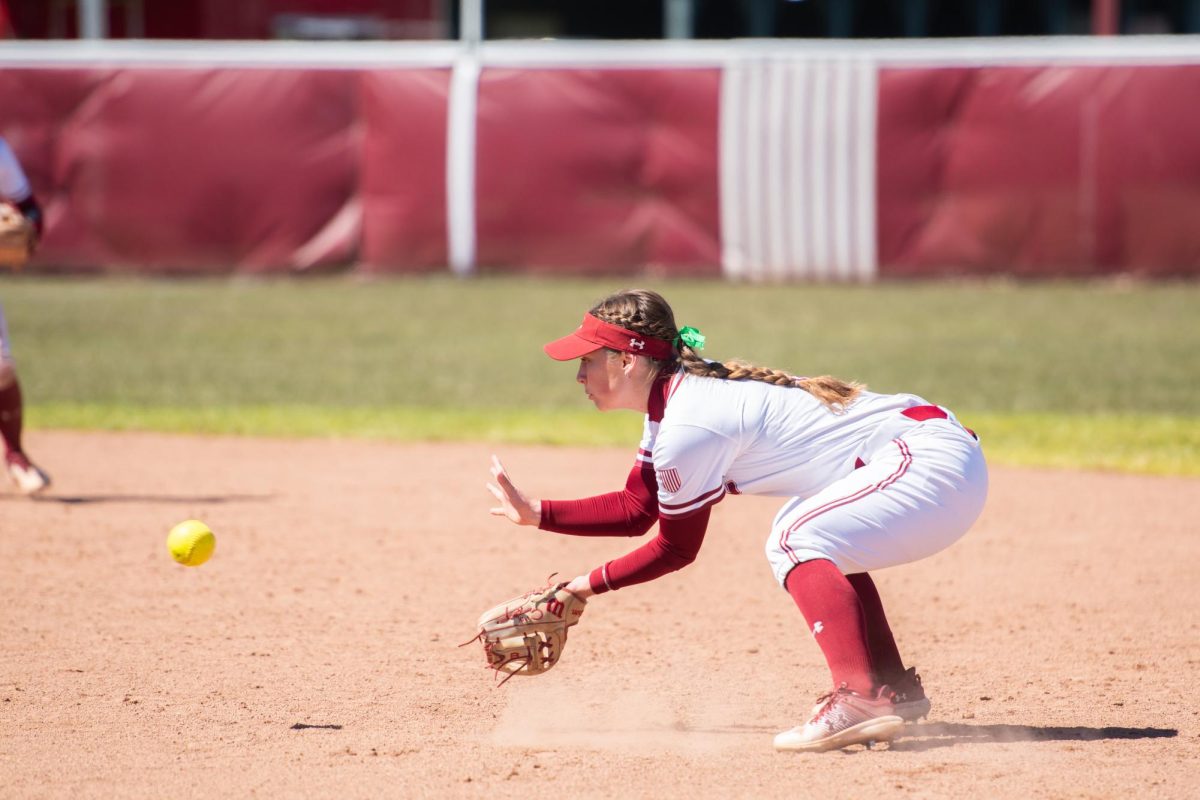Club sports at Colgate University are a unique experience. Unlike a varsity sport in high school or college, clubs are run more or less entirely by students. While funding, practice space and official status are provided by the school, there are no coaches and almost all the administrative tasks of the clubs are handled by student leaders. The result, at least in the case of the Colgate women’s club soccer program, is a far more informal environment. To be a part of the club soccer team does not require any significant threshold of commitment; members are free to attend as frequently or infrequently as they wish.
Senior and women’s team captain Grace Grassi described the informal structure of the program as a means to make the club more inclusive.
“[Club soccer] being a student-led club really allows everyone to get the exact kind of experience that they’re looking for,” Grassi said.
An outside observer might assume that the lack of formal structure would lead to a disorganized or inactive club. But according to Grassi, the reality is quite the opposite — the lack of formal expectations means that those who attend the club do so because of internal motivation.
“My favorite part is the enthusiasm that everyone has to be there in the first place,” Grassi said. “It’s not mandated that you arrive for every game or every practice, so we have really competitive, dedicated players that are consistent in showing up.”
The club’s success depends not only on the dedication of the players but also on that of the captains. Because neither the men’s nor women’s team has a coach, captains are in charge of scheduling and running each and every practice. This task proves to be especially difficult in the winter, when only the indoor field in Sanford Field House is available for practicing. Additionally, captains must coordinate with other colleges in order to play matches, either in a league or through individually-scheduled friendlies.
Sophomore and co-captain of the women’s team Rylie Berwanger discussed the need for the captains to manage not only the soccer-related aspects of the club, but also its social environment.
“A big thing, for me, is adding bonding to the team and creating an environment that’s more social and [where] people get to know each other more,” Berwanger said. “If I think of other sports like [ultimate] frisbee or rugby, they’re very tight socially; I feel like soccer’s not at that place right now.”
Berwanger also made sure to note that, while she had plans for next season based on player feedback about how to improve the club, she very much enjoyed the community and experience as it currently exists. Grassi likewise sought to emphasize the club’s community, citing in particular the ability of the women’s and men’s teams to share field space and play together both by choice and due to spacial constraints.
“Because it’s been so difficult to find practice times over the past few months with 11 teams [playing] inside, we’ve been able to practice with the boys and do lots of co-ed scrimmages,” Grassi said. “I think [that] really speaks to the welcoming nature of both sides of the club.”
The collaboration between the men and women’s teams assuredly points to a willingness to build community and connections unique to club soccer.
There’s another potential expectation that the club soccer teams hope to extinguish — that you have to be a highly skilled and committed soccer player to be a valuable member of the club. Instead, all who are interested in playing are welcome.
“Something that surprised me this year when we were trying to recruit new players was that many girls were a bit intimidated by this being a club sport as opposed to something more casual and were surprised to find out that they would be welcomed onto the team regardless of their skill level,” Grassi said. “It’s a really great opportunity for [all] people who want to play.”
There is no doubt that sports can be an incredibly rewarding experience. Colgate’s women’s club soccer program strikes a balance between intensity and low commitment, between competition and community, that many might find appealing. Those who have any interest in playing soccer at any point in their lives should consider trying out the club team here and experiencing their fun and active community.

















